Adapting participatory epidemiology to estimate the incidence of human diseases in Moroto District, Karamoja, Uganda
Tufts Karamoja Archives
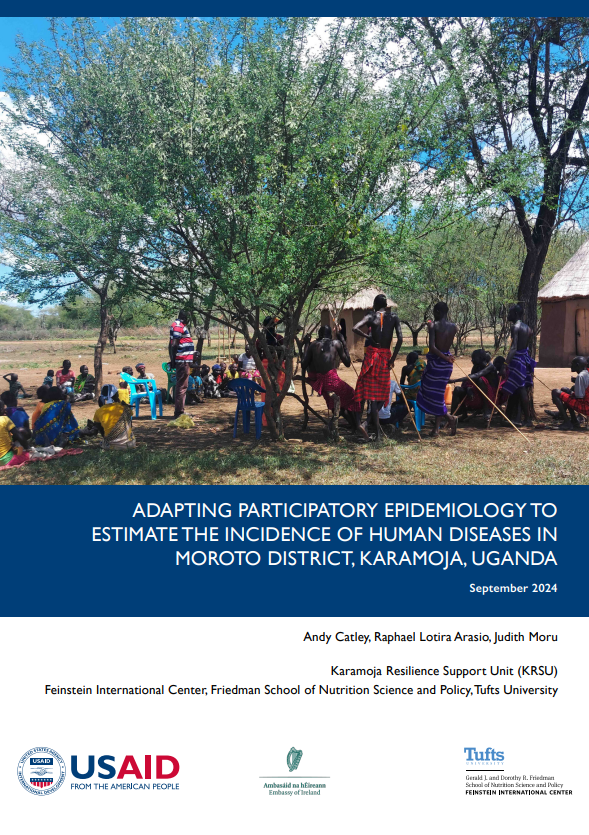
Adapting participatory epidemiology to estimate the incidence of human diseases in Moroto District, Karamoja, Uganda
This study explored the use of participatory epidemiology (PE) to estimate the annual incidences of human diseases in Karamoja, Uganda, with emphasis on diseases associated with water. Adapted PE methods were used successfully to estimate disease incidences in young children and adults, and revealed a rich knowledge on the clinical signs and causes of diseases. The report concludes that PE could be useful for overcoming some of the spatial limitations of the health surveillance system in Karamoja, and the temporal limitations of bi-annual food security and nutrition assessments.
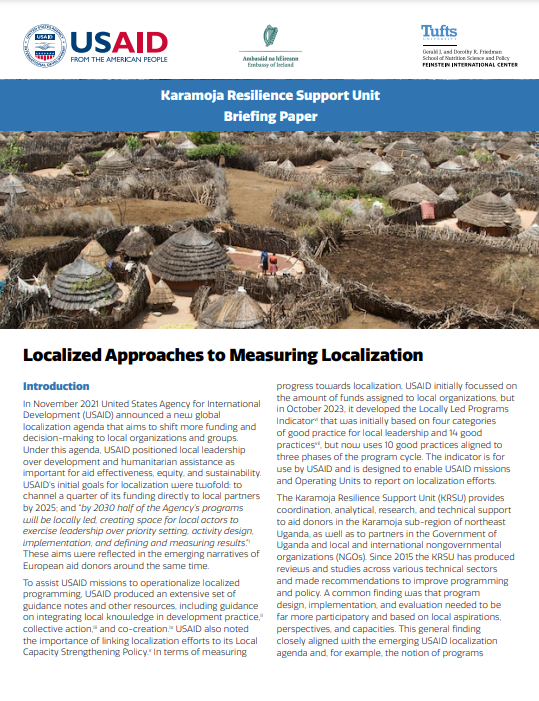
Localized Approaches to Measuring Localization
In November 2021 United States Agency for International Development (USAID) announced a new global localization agenda that aims to shift more funding and decision-making to local organizations and groups. Under this agenda, USAID positioned local leadership over development and humanitarian assistance as important for aid effectiveness, equity, and sustainability.
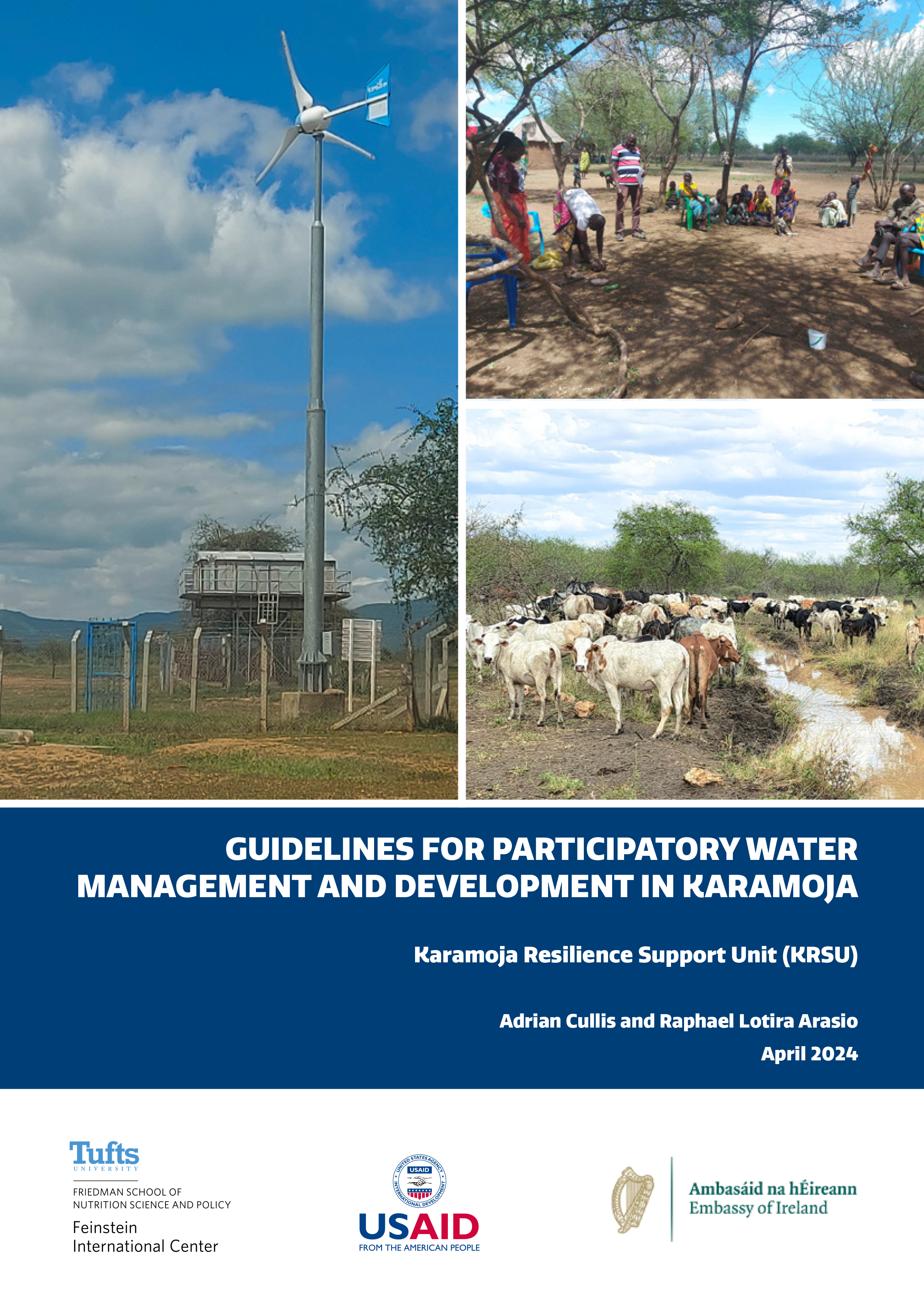
Guidelines for Participatory Water Management and Development in Karamoja
Water resources support key sectors of the economy namely: hydropower generation, agriculture, fisheries, domestic water supply, industry and navigation among others. However, the efficiency and sustainability of water utilization has recently been a concern in Uganda mainly due to inadequate sectoral collaboration in planning and implementation, increasing frequency of floods and droughts, environmental degradation and pollution of water resources.
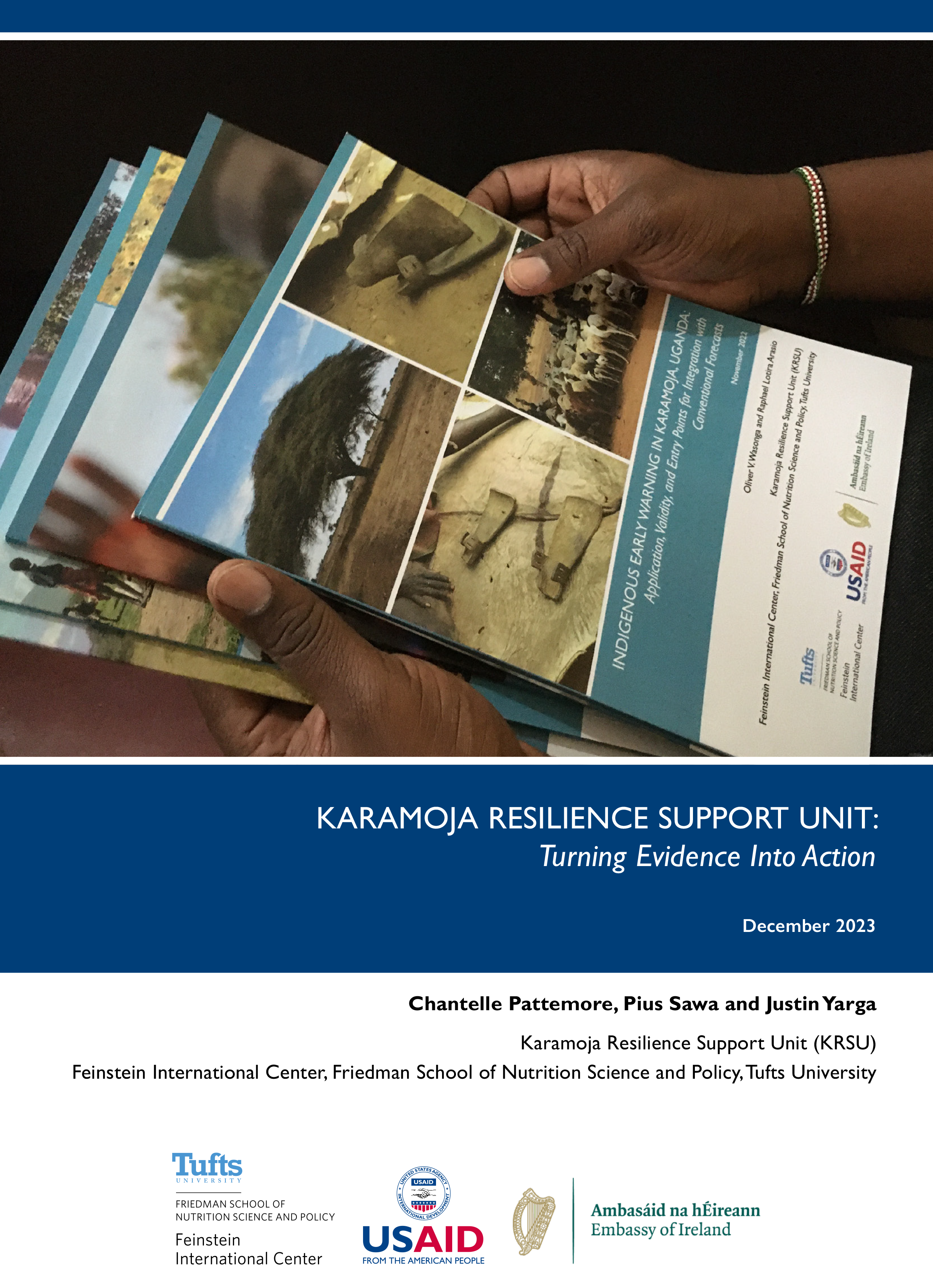
KARAMOJA RESILIENCE SUPPORT UNIT: Turning Evidence Into Action
To gauge understanding of how KRSU’s work benefits and is utilized in Karamoja, a rapid review was conducted in November and December 2023. The review involved face-to-face interviews with a number of the organization’s partners – including non-governmental organizations (NGOs), universities, academics, and donors.
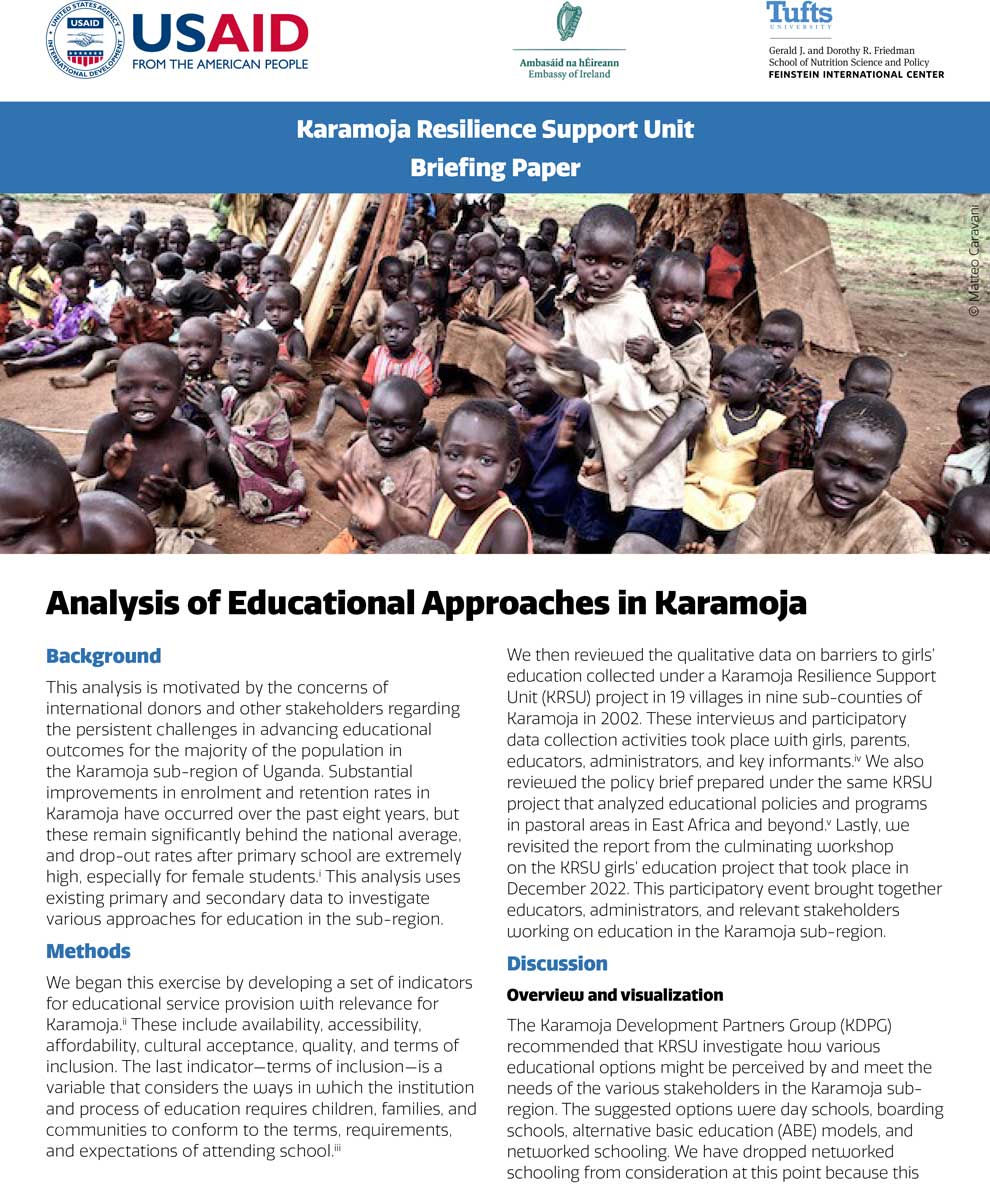
Analysis of Educational Approaches in Karamoja
This analysis is motivated by the concerns of international donors and other stakeholders regarding the persistent challenges in advancing educational outcomes for the majority of the population in the Karamoja sub-region of Uganda. Substantial improvements in enrolment and retention rates in Karamoja have occurred over the past eight years, but these remain significantly behind the national average, and drop-out rates after primary school are extremely high, especially for female students.i This analysis uses existing primary and secondary data to investigate various approaches for education in the sub-region.
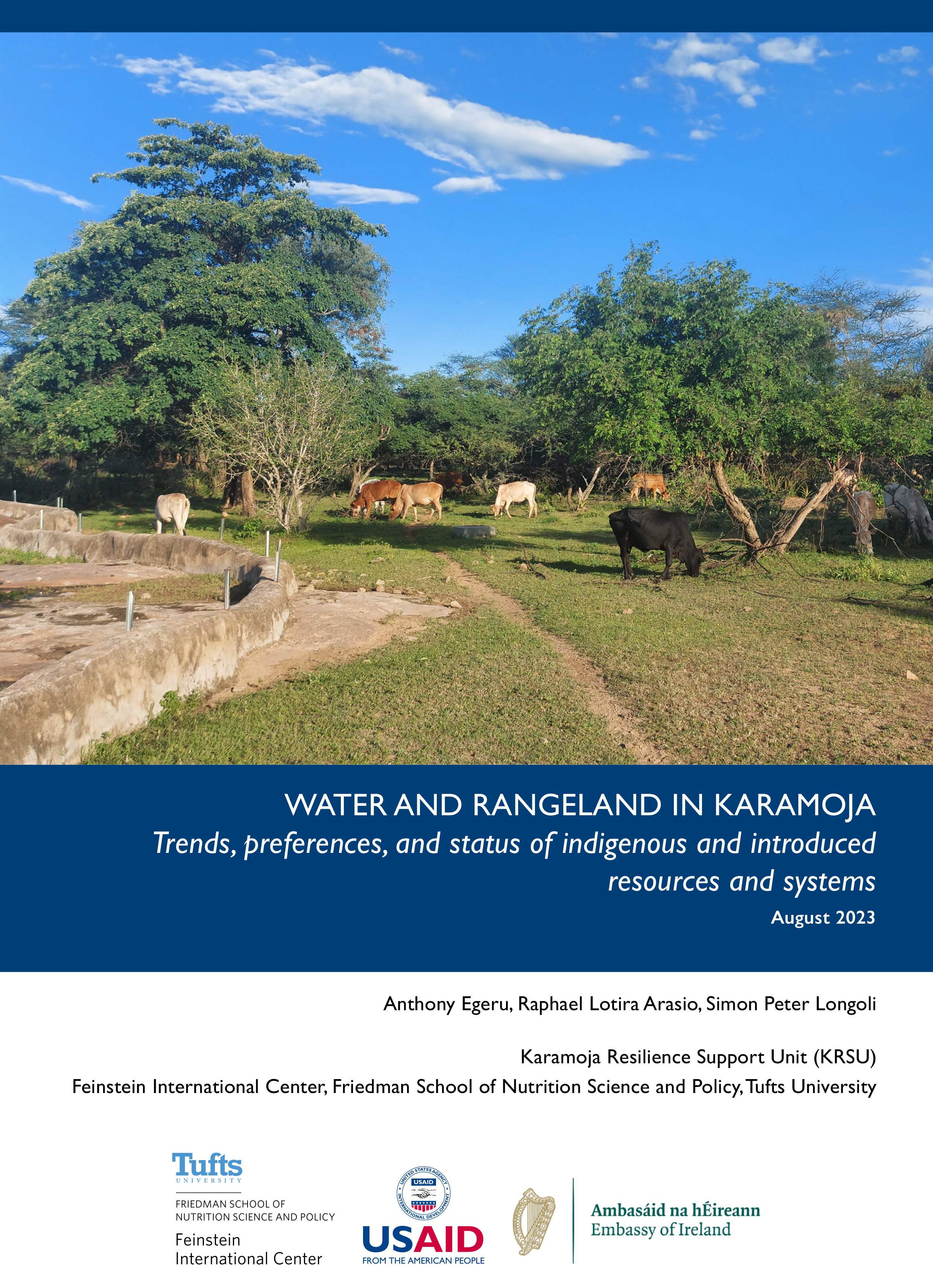
WATER AND RANGELAND IN KARAMOJA
Water and rangeland resources are the basis for livestock production in pastoralist areas of Africa and therefore have major impacts on pastoral livelihoods. Households with insufficient access to water or productive rangeland experience suboptimal herd growth and production, with associated negative impacts on the income and nutritious foods that livestock provide.
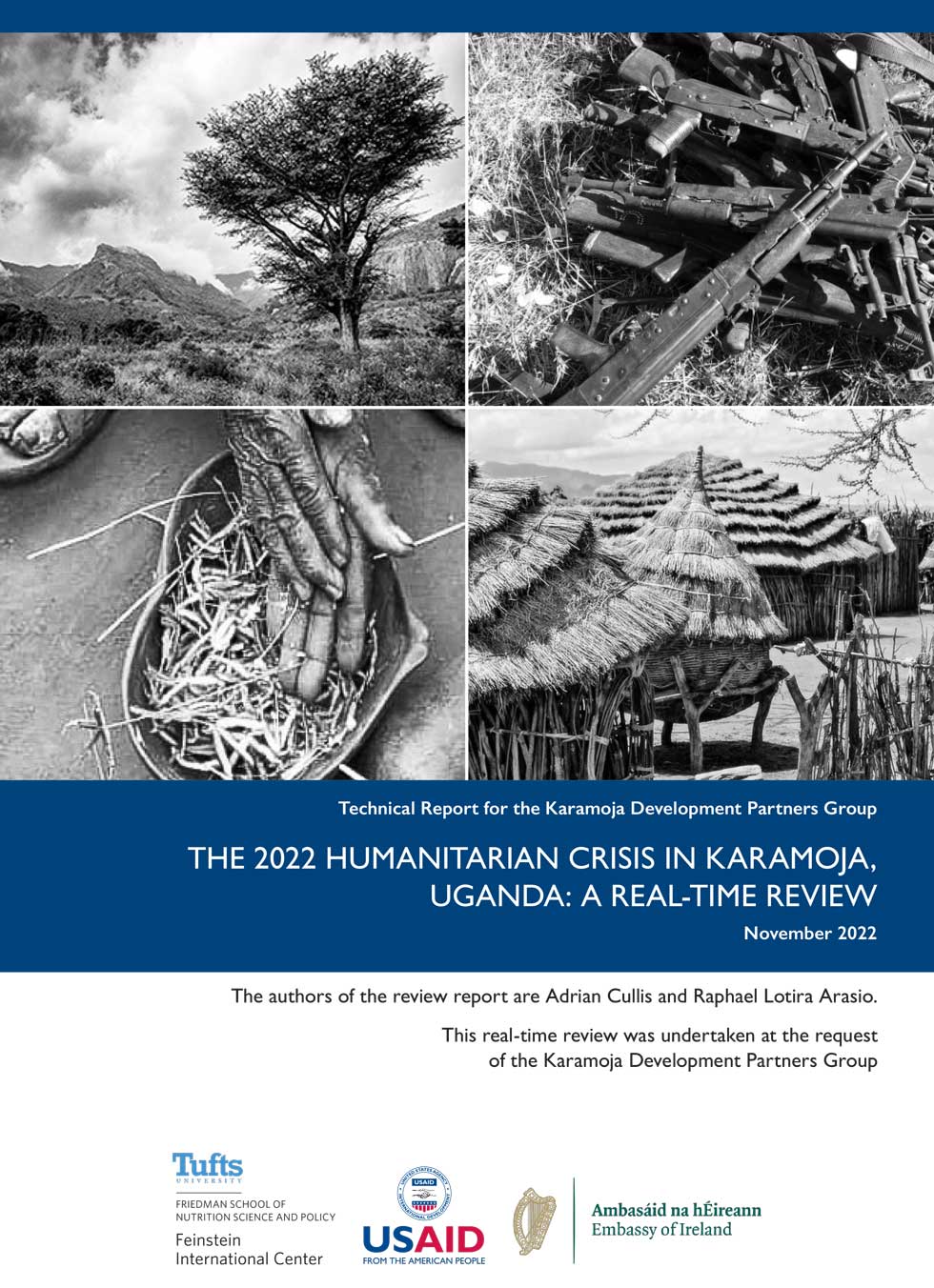
The 2022 Humanitarian Crisis in Karamoja, Uganda: A real-time review
This real-time review aims to document the events that led to Karamoja’s hunger crisis in 2022, the reporting of the worsening situation by early warning systems, and the responses of the Government of Uganda and the international aid community. The review took place from the September 27–October 21, 2022.
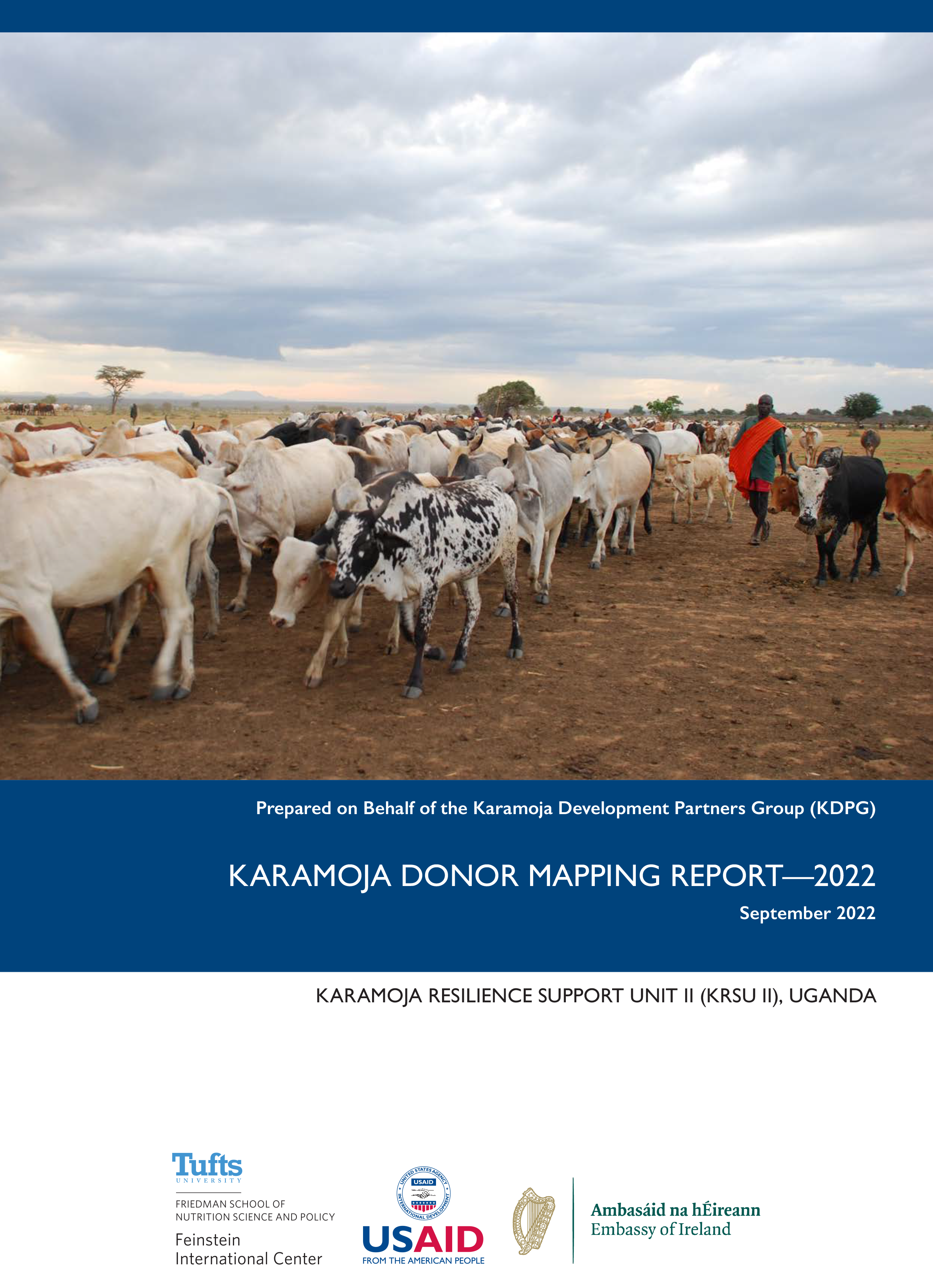
Karamoja Donor Mapping Report
This report summarizes planned humanitarian and development activities of major donors in the Karamoja sub-region

Livestock in Karamoja: improving markets and veterinary services
As Karamoja is a predominantly a pastoralist region, market trading of livestock is key to the region’s economy. However, a number of factors – ranging from policies and seasonality to price trends and market types – prevent livestock value chain actors from maximising their income and achieving livelihood security.
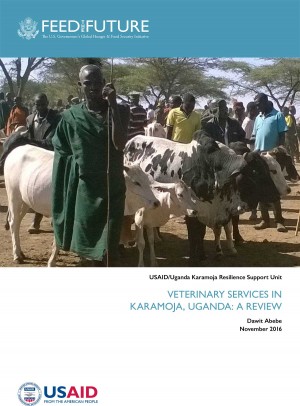
Veterinary Services in Karamoja, Uganda: A Review
The KRSU has recently completed a comprehensive review of veterinary services in Karamoja. The review covers all aspects of public and private sector service delivery, and reports the persistent high impacts of livestock diseases on livelihoods. The review recommendations include the need for stronger coordination of veterinary projects and programs, better support to community-based systems, and improving linkages between private veterinary pharmacies and community-basd animal health workers.
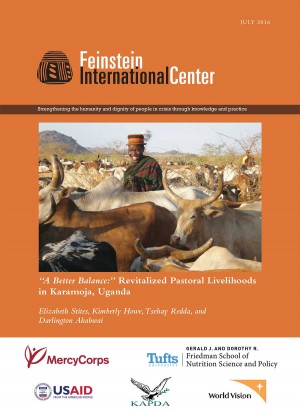
A Better Balance: Revitalized Pastoral Livelihoods in Karamoja, Uganda
Livelihoods in Karamoja continue to change as security improves; this includes a revitalization of pastoral production for some households. This report details the findings from research undertaken in February and March 2016 in four districts of Karamoja aimed at better understanding the current patterns of pastoral and agro-pastoral production in the region.
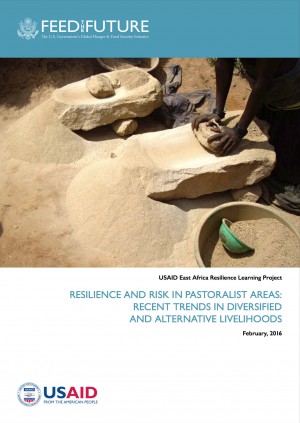
Livelihood diversification trends, risks, and programming implications
This study explored recent trends in diversification by East African pastoralists, the factors that drive their choices, and the potential short and longer-term consequences of their decisions. It considered the risks and costs of diversified and alternative livelihoods, as well as the benefits. The report presents findings from three case studies from Karamoja in northeastern Uganda, the Borana region of southern Ethiopia, and the Garissa District of northeastern Kenya. It includes policy recommendations regarding land tenure, local value addition around livestock production, and investments in sustainable natural products, local infrastructure, and urban/peri-urban planning. Further recommendations address nutritional issues, the promotion of regional trade, and growing demands for education, training, and business development skills.
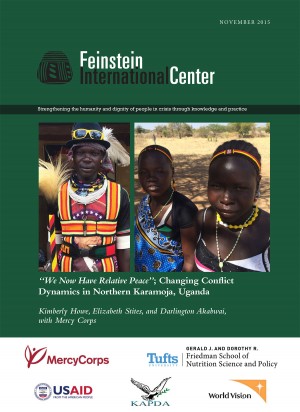
“We Now Have Relative Peace”; Changing Conflict Dynamics in Northern Karamoja, Uganda
This report reflects research from early 2015 conducted by the Feinstein International Center at the Friedman School of Tufts University and Mercy Corps in northern Karamoja, Uganda. The research examined changing conflict dynamics and related conflict mitigation and peacebuilding initiatives. The objective of the study was to provide a nuanced understanding of the current threats to security at the household, community, district and regional levels, and to examine how these dynamics have changed in recent years. The study examined conflict mitigation initiatives, including access to and efficacy of these systems.
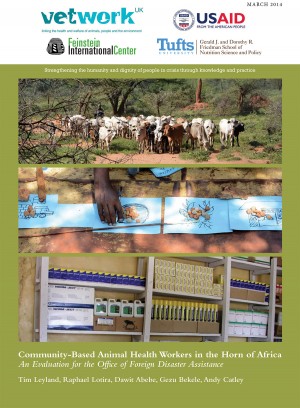
Community-Based Animal Health Workers in the Horn of Africa: An Evaluation for the Office of Foreign Disaster Assistance
Evaluation of USAID Office of Foreign Disaster Assistance (OFDA)-funded Community-Based Animal Health Worker (CAHW) programs in the Horn of Africa
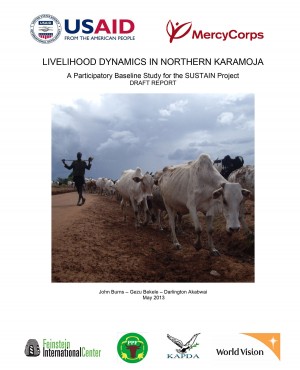
Livelihood Dynamics in Northern Karamoja: A Participatory Baseline Study for the SUSTAIN Project
This report documents the findings of a livelihoods assessment carried out as part of the USAID funded Sustainable Transformation in Agriculture and Nutrition (SUSTAIN) project being implemented by Mercy Corps and partners in the Karamoja sub-region of Northeastern Uganda. The overall goal of the SUSTAIN project is to promote peace and food security through three complementary strategic objectives aimed at (1) strengthening livelihoods, (2) improving nutritional outcomes for children under two and (3) building local capacities for conflict mitigation.The project is being implemented in three districts of Northern Karamoja, Abim, Kaabong and Kotido. The objective of this particular study is to inform implementation and collect baseline impact indicators for the activities under objective # 1. Under this objective (livelihoods strengthening)the project aims to improve productivity, market access, marketing behaviors and the overall business environment.